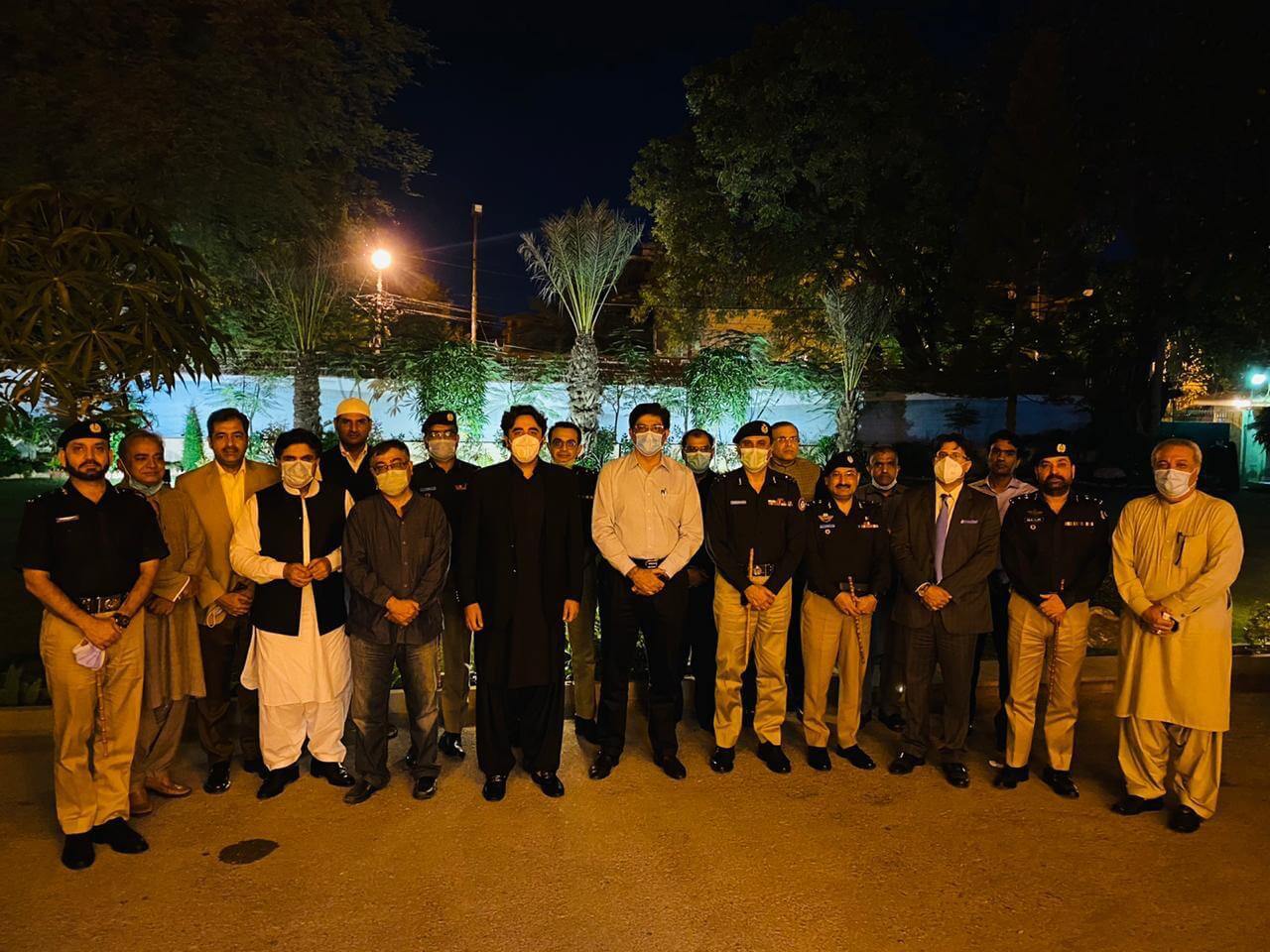On Tuesday, most top-ranking officers of the Sindh police force applied for leave to protest the abduction of Inspector-General Mushtaq Ahmad Mahar by the Pakistani Rangers, a paramilitary force responsible for countering security threats posed by internal and external forces. Imran Yaqood Minhas, Additional Inspector-General of Police, in his letter of leave, said that “the high command of the Sindh Police was ridiculed and mishandled,” which rendered the entire force “demoralised and shocked.” Consequently, he requested leave for 60 days to cope with the “stressful situation” which was obstructing him from discharging his duty.
Additionally, several other senior police officers also cited the same reasons and applied for a leave of absence. The decision by the police officers closely followed a letter of leave that was submitted by Mahar after being released. Pakistani Army Chief Qamar Javed Bajwa has consequently launched an investigation into the issue.
Thread by @sindhpolicedmc: The unfortunate incident that occurred on the night of 18/19 October caused great heartache and resentment within all ranks of Sindh Police. As a result, IG Sindh decided to proceed on le...… https://t.co/bDwKo8AKXB
— Sindh Police (@sindhpolicedmc) October 20, 2020
These actions were in response to the abduction of Mahar, which was allegedly carried out to coerce him into filing an FIR against Safdar Awan, a retired army captain and the husband of Maryam Nawaz, a senior leader of the opposition party Pakistan Muslim League-Nawaz (PML-N). The arrest shortly followed Awan’s attendance at an anti-government rally, wherein he and several members of the PML-N chanted “vote ko izzat do” (honour the vote). Subsequently, the Pakistani Rangers barged into Awam’s hotel room and arrested him. He was charged under the Quaid-i-Azam’s Mazar (Protection and Maintenance) Ordinance, 1970, as his actions were deemed as being “against the mausoleum’s protocol.”
I was in the room, sleeping, when they barged in. https://t.co/1gMEHHUnPx
— Maryam Nawaz Sharif (@MaryamNSharif) October 19, 2020
Appreciate the quick action taken by IG Sindh against the the hooligans who disrespected Mazar-e-Quaid.
— Ali Haider Zaidi (@AliHZaidiPTI) October 19, 2020
Law must take its course.
Maryum once again lying that the hotel door was broken. Video shows otherwise. Do u see any handcuffs? Does it look like he was arrested by force? pic.twitter.com/7DLHTiw2kA
The country is also witnessing widespread protests launched by the Pakistan Democratic Movement (PDM), an alliance that was recently launched by the main opposition parties in Pakistan. Last month, members of the alliance unanimously adopted a 26-point joint resolution aimed at organising nationwide protests against the incumbent party, the Pakistan Tehreek-e-Insaf (PTI). The primary concern of the coalition is the increasing influence of Pakistan’s military on the internal affairs of the country.
In a show of solidarity to the Sindh police, the Chairman of the Pakistan People’s Party (PPP), Bilawal Bhutto Zardari, accompanied by Syed Murad Ali Shah, Chief Minister of the Sindh Province, met with Mahar and several other officers. Zardari informed Mahar of his conversation with General Bajwa, assuring him that an independent inquiry would be initiated into the matter. Following the meeting, Mahar deferred his leave until the inquiry was concluded, and urged his officers to do the same in the “larger national interest.” The Sindh Police also expressed their appreciation for General Bajwa’s commitment to initiate an inquiry into the incident.
Pakistan’s opposition parties and the government have exchanged blame for the escalation of the issue. Nawaz Sharif, leader of the PML-N party and former Prime Minister, said, “There is a lot happening. I feel the respected judiciary should take notice and that they are capable of taking suo moto notice against such actions.” Meanwhile, Raja Pervez Ashraf, vice-president of the PDM and a senior leader of the PPP said, “This was basically the responsibility of the prime minister. He is nowhere. The whole Sindh police are getting demoralised … Can I say that the prime minister is intentionally doing it as his party is not in the government in the province.”
Meanwhile, Minister of Information Shibli Faraz has blamed the Sindh government for its “sinister role” in politicising the incident and accused the opposition of “shifting the war against their corruption towards the institutions.”

